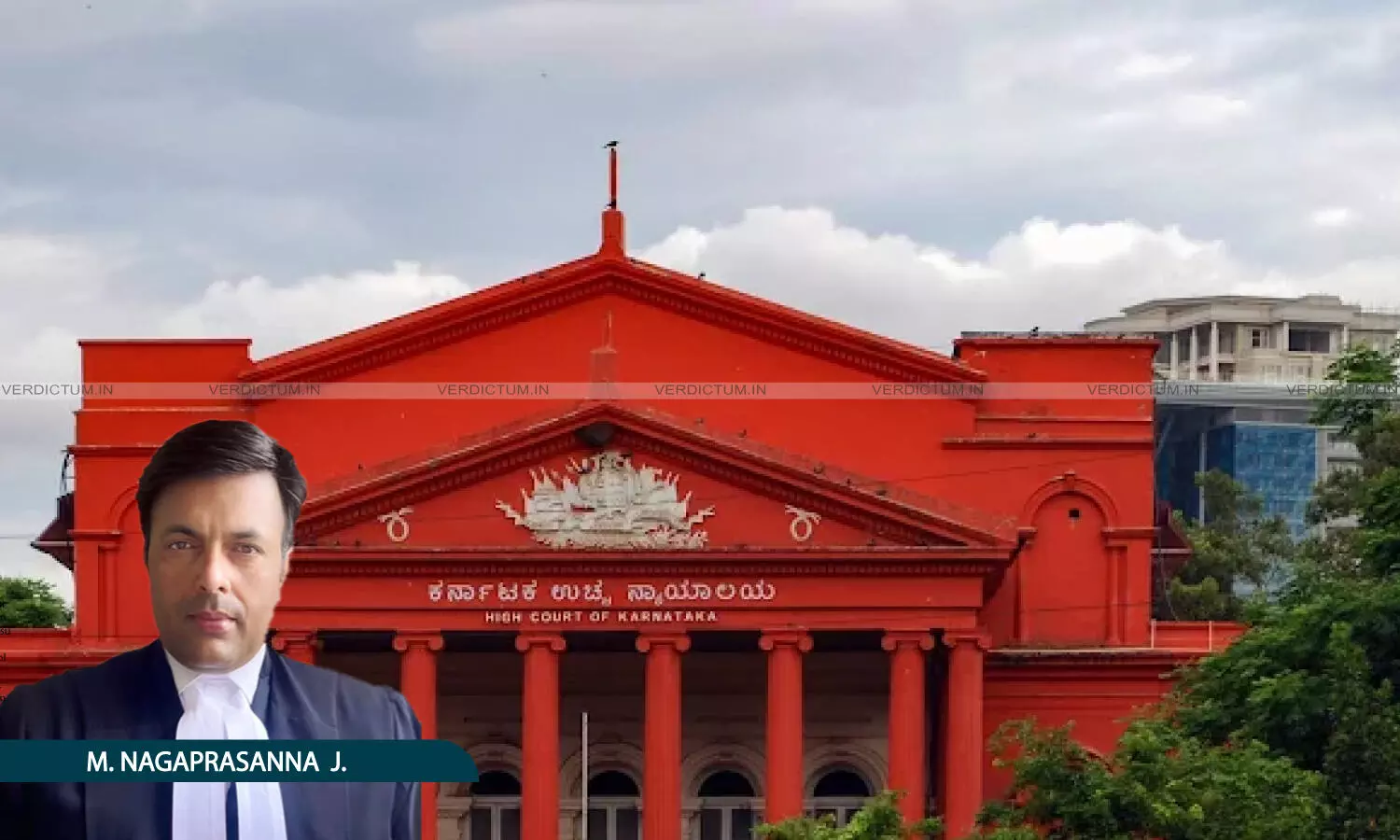
Justice M. Nagaprasanna, Karnataka High Court
Karnataka High Court: If Plaintiff Applies For Withdrawal Of Partition Suit, Defendants Are Entitled To Be Transposed As Plaintiffs
 |
|The Karnataka High Court rejected a Civil Revision Petition filed by the legal representatives of the deceased, challenging the Order of the Sessions Judge which rejected the memo seeking dismissal of the suit as not pressed.
The Karnataka High Court reiterated that if the Plaintiff applies for withdrawal of Suit for Partition, the Defendants are entitled to be transposed as Plaintiffs and continue with the Suit.
The Court reiterated thus in a Civil Revision Petition filed by the legal representatives of the deceased, challenging the Order of the Sessions Judge which rejected the memo seeking dismissal of the suit as not pressed.
A Single Bench of Justice M. Nagaprasanna observed, "The coordinate bench also follows the law laid down by the division bench in SMT.GOWRAMMA’s case and holds that if the plaintiff applies for withdrawal of suit for partition, the defendants are entitled to be transposed as plaintiffs and continue with the suit."
Advocate Sainath appeared on behalf of the Petitioners while Advocate Ramachandra G. Bhat appeared on behalf of the Respondents.
Brief Facts
The Plaintiff (original Petitioner) died during the proceedings and therefore, the legal heirs (Petitioners herein) were brought on record. The Defendants were also represented by their legal heirs i.e., the Respondents. All were members of same family. The owner of the suit schedule properties had three children. The other member of the family had several children. All the parties entered into a family arrangement in 1998 by drawing up a family settlement deed and a suit was then instituted on some dispute between the members of the family seeking partition of the properties. The said suit ended up in a compromise not between all parties but between few of them in 2006. The parties to the compromise were the families of the Defendants, excluding the Plaintiff.
In accordance with the compromise, several properties were distributed which led the other persons who were not parties to the compromise to file a suit, again seeking partition of properties, which were according to the Plaintiff, joint family properties. In 2023, several of the Defendants filed their memo of ‘no objection’ for withdrawal or dismissal of the suit and to receive compensation. The concerned Court rejected the same on the ground that the Defendants and Plaintiff are on equal footing and if anyone objects to withdrawal of the suit, the suit may be continued by the Defendants, transposing themselves as Plaintiffs in the suit. Being aggrieved, the Petitioners approached the High Court.
Reasoning
The High Court in view of the above facts, noted, “The gravamen of the matter is, whether in a suit for partition, quintessentially inter se amongst the members of the family with regard to undivided property, a plaintiff enjoys an unfettered liberty to withdraw from the fray, leaving others similarly placed in the lurch. The said issue though ostensibly simple, calls for nuanced engagement and consideration.”
The Court reiterated that in a suit for partition of joint properties, every Defendant is also in the capacity of the Plaintiff and would become entitled to a decree in his favour, if it is established that he has a share in the property.
“The Apex Court in the case of A.KRISHNA SHENOY v. GANGA DEVI G holds that in a suit for partition, every interested party is deemed to be a plaintiff. Law does not bar passing numerous preliminary decrees”, it said.
The Court added that it is a settled principle of law that a suit for partition is a recurring and continuing cause of action and the right to seek partition is a substantive right.
The Court also observed that the concerned Court in consonance with the well settled position of law, rightly permitted their transposition as Plaintiffs and to permit withdrawal in the face of such objections, would amount to denial of justice to those who still seek adjudication in a suit for partition.
“The concerned Court was answering a memo filed by the plaintiff seeking to withdraw the suit. The memo comes to be rejected following the judgment of the division bench in the case of SMT.GOWRAMMA (supra) holding that the plaintiff may be the master of her plaint, but in a suit for partition, the plaintiff and defendants are on equal footing and, therefore, the memo comes to be rejected”, it further noted.
The Court concluded that the unmistakable inference is, sustainability of the Order and unsustainability of the claim of the Plaintiffs.
Accordingly, the High Court rejected the Petition and refused to interfere with the impugned Order.
Cause Title- Sheshamma v. Ramesh Kumar & Anr. (Case Number: CIVIL REVISION PETITION No.144 OF 2025)